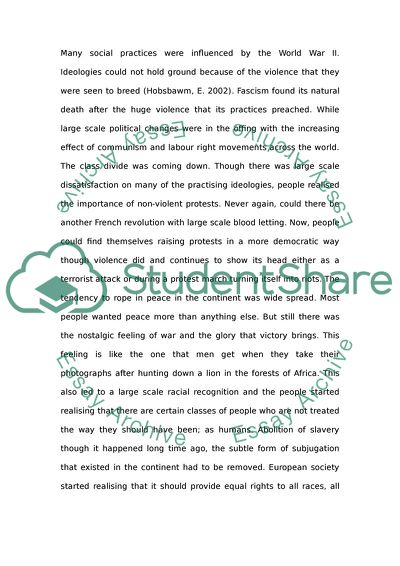Cite this document
(The Impact of Second World War on European Societies Coursework, n.d.)
The Impact of Second World War on European Societies Coursework. Retrieved from https://studentshare.org/social-science/1540600-to-what-extent-did-the-second-world-war-transform-european-societies
The Impact of Second World War on European Societies Coursework. Retrieved from https://studentshare.org/social-science/1540600-to-what-extent-did-the-second-world-war-transform-european-societies
(The Impact of Second World War on European Societies Coursework)
The Impact of Second World War on European Societies Coursework. https://studentshare.org/social-science/1540600-to-what-extent-did-the-second-world-war-transform-european-societies.
The Impact of Second World War on European Societies Coursework. https://studentshare.org/social-science/1540600-to-what-extent-did-the-second-world-war-transform-european-societies.
“The Impact of Second World War on European Societies Coursework”. https://studentshare.org/social-science/1540600-to-what-extent-did-the-second-world-war-transform-european-societies.


